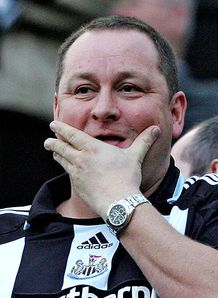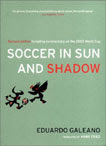Go St. Pauli!
Saturday, March 14, 2009
FC St. Pauli- short documentary
Go St. Pauli!
Thursday, March 12, 2009
Off the pitch incidents
 Apparently even a prominent black footballer, who's on the Everton first team, voted Young Player of the Season in 2007/8, scored four goals in a UEFA cup campaign, represented his country at the Olympics (winning a silver medal), and is on TV screens most every weekend, can't walk down the street or look in a shop window without becoming a criminal suspect...
Apparently even a prominent black footballer, who's on the Everton first team, voted Young Player of the Season in 2007/8, scored four goals in a UEFA cup campaign, represented his country at the Olympics (winning a silver medal), and is on TV screens most every weekend, can't walk down the street or look in a shop window without becoming a criminal suspect...The Everton forward Victor Anichebe is awaiting an apology following a police swoop as he was looking in a jeweller's window in Knutsford, Cheshire. Officers, directed by CCTV operators, rushed to the scene and began a "heated dialogue" with Anichebe and his friend.Now it's nice to see the club backing Anichebe unequivocally, but there's more than just the Chang beer elephant in the room here. There's plenty said in the English media about "racism in football," especially involving fans in the stadiums of Southern and Eastern Europe making racist chants against visiting players from English teams... but I wonder if this sort of incident will come under the same scrutiny, lead to fines and calls for English society to 'examine itself', and fall under the aegis of FIFA's Kick it Out campaign? Or is this sort of 'normal', 'everyday' institutional racism something that black players should just expect to encounter and deal with on their own?The 20-year-old striker's friend was put in handcuffs after police believed the duo were possibly part of a gang of raiders responsible for robberies on the exclusive King Street. The Nigerian-born Anichebe was wearing a leg cast following surgery when police detained them both. An Everton spokesman, Ian Ross, said: "Victor was deeply upset and very distressed by the incident. I believe he is still waiting for a full and unreserved apology from the police involved. Once he has received that both the club and the player will consider the matter closed."
Anichebe's known for being a level-headed striker, and I know he's got to officially 'consider the matter closed', but I tell you what- if I was followed on CCTV and swooped on by cops when I was out shopping, you can bet I'd hold a grudge.
Sunday, February 22, 2009
Half time to be extended...?

Unfortunately for Mike Ashley, only the sponsors of his Newcastle United team got bailed out by the UK government
Looks like the boardroom cabal is at it again...
What they're talking about is adding an additional five minutes to the current half time break, which is 15 minutes long. Doesn't sound like much, but all credit to the fans who see that slippery slope coming, and are at the very least reluctant to let this change happen."In the week when the Allen Stanford scandal led to widespread accusations of cricket 'selling its soul for cash', football authorities have come under fire for plotting to extend the half-time interval in matches, apparently for commercial reasons."
I'm sure a lot of the fears come from comparisons with the bad examples that already exist- namely the fear that top level football will begin to resemble its US namesake, with ad breaks during substitutions and after goals. Remember what happened when ITV tried to sneak in a few ads into the Liverpool-Everton FA Cup match earlier this month (expecting a penalty shootout, no doubt)?
Yep, fans like me are obviously angry about these latest developments... but can anyone really have any illusions about football in this respect? When Man United run on to the pitch with the AIG logo emblazoned across their shirts, when Bolton play a home fixture at the Reebok Stadium, or Celtic gear up for the fourth round of the CIS Insurance cup, does anyone really think that that top-level football in the big commercial leagues like England hasn't already "sold its soul for cash" a long, long time ago?
Tuesday, February 3, 2009
Política
I'm hoping the posts in this blog will prove our point, that sports aren’t just mindless entertainment. There’s so much more. There’s politics, economics, unity and racism; elements and contradictions of society apparent on a playing field.
On a related note, The Guardian has a great summarizing article about the politics of football and how, historically, they have tended to gravitate left-wing. It's extremely difficult to argue that point now, especially considering the billion dollar business of English football, but Barney raises some good points:
British football is ahead of the rest of the world here. Lyons [editor of When Saturday Comes, the UK's only independent national football magazine] believes that in other countries players are not only more openly political, but possibly also have a greater bond with their supporters. "You find in countries where the working classes tend to be more political, such as Argentina, where there is still a strong trade union movement, there tends to be more of a sense of communal identity," he says. "Society is perhaps based around older social patterns that no longer exist here, such as heavy industry. In among these, football is one of the forces that bind people together."
Check out the rest of the article. While I appreciate the sentiment, I'm really glad politics in football isn't limited to Thierry Henry sporting a Che Guevara shirt.
Thursday, January 29, 2009
No Más
You can clearly see him saying "No Más" as he walks off, at 1:37 in the video. No more of this shit! I'm not performing for you anymore, you bastards! Brilliant.
Still, it's too bad that the clip ends where it does- Eto'o was eventually convinced to continue the game by his coach, went on to score the clinching goal as Barca beat Zaragoza 2-0. Remembering the sight of the striker at the end of the match, standing in the centre circle with his fist raised against the jeers of the losing supporters, still gives me chills.
Wednesday, January 28, 2009
Subversive soccer

It’s no secret that women aren’t even allowed in football stadiums, unless they’re watching a women-team play. The Ayotallahs argue that their reasons are moral and religious; women just can’t be around those foul-mouthed soccer hooligans, and they live in a country that implements strict gender segregation. Iranian women defied the authorities and forced their way into the Tehran's Azadi (Freedom) stadium, when Iran qualified for the World Cup by defeating Bahrain 1-0 (back in 2005). In 2006, President Mahmoud Ahmadinejad lifted the ban, claiming that allowing women in the stadiums would “promote chastity.” They must be given a chance to watch all sporting events and must be given the best seats in the house. Ayatollah Ali Khamenei, however, quickly overruled the lift on the ban.
Offside is a good movie to watch about the struggle of female footy fans in Iran. It’s quirky, sweet, and captures the spirit of football better than most movies about this sport. After all, who else would know better the whimsical attraction and poignancy of football, than those who struggle for something as simple as watching a live game.
Tuesday, January 27, 2009
Paulson's Mini-Bailout for Football Stadium in Portland
The piece brings up some important themes found in much of Zirin's other writings, about the relationship between local economies and professional sports in their current, corporate form. Though (particularly in the US) the latter is often touted as a means of developing the former, in a microcosm of wider trickle-down economic theory, the article touches upon some recent studies that have clarified things...
Recently, sports economists Dennis Coates of the University of Maryland and Brad Humphreys of the University of Alberta carried out research that asked whether building new stadiums to entice professional sports teams spurred the local economy.
In their study – which spanned nearly 30 years and examined almost 40 attempts to lure teams – they failed to discover a single example of a sports franchise jumpstarting the local economy. In fact, they uncovered the opposite trend: "a reduction in real per capita income over the entire metropolitan area".
They wrote: "Our conclusion, and that of nearly all academic economists studying this issue, is that professional sports generally have little, if any, positive effect on a city's economy."
Anyway, there's a lot in there, so check it out. It's good.
